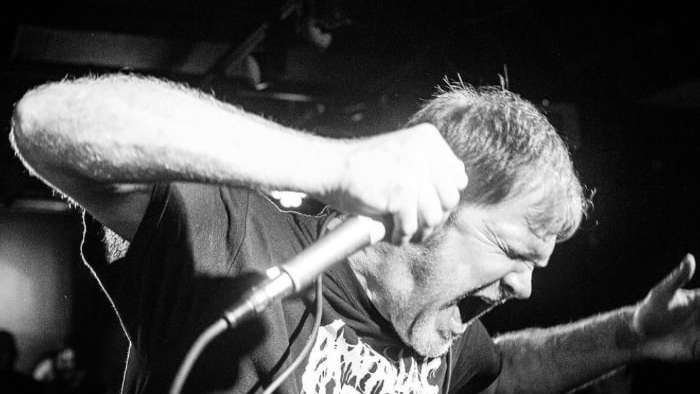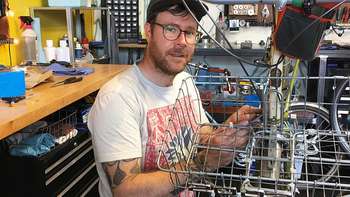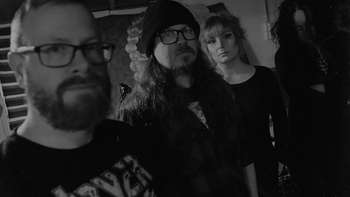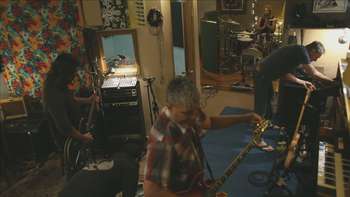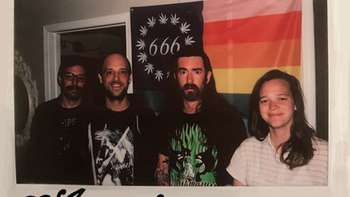There are a lot of misconceptions about the life of a musician. The old rock star image of bright lights and fast living is almost patently false. Most musicians have day jobs – and not just to pay the bills. Jobs provide new challenges, personal fulfillment and, yes, some rent or gas money. And usually when somebody is writing a new record or scheduling a tour, they have to balance that with their job.
How an artist spends their time by day will influence the creative process at night. In Don’t Quit Your Day Job, Scene Point Blank looks at how musicians split their time, and how their careers influence their music – or, sometimes – how their music provides escape.
In this edition, we chat with Blake Harrison of Zealot R.I.P. In his work as a Design Engineer he has helped develop sound systems in small neighborhood churches, large casinos, and gigantic arenas. We ask what he likes about the job, how it affects his music, and vice versa.
Scene Point Blank: First, what is your job title? You shared some background before we went on-record. Do you specifically work in larger venues, or any place that needs you (in which case you probably just named the big ones because people have heard of them)?
Blake Harrison: Design Engineer or Technology Engineer. I basically just named the ones people may have heard of, not too many people are familiar with Good Samaritan Church in Anywhere USA. My line of work calls for jobs of all sizes.
Scene Point Blank: What was your path to this job? Did you plan for it, or "fall into" it?
Blake Harrison: I basically fell into it. I had lost my job and a buddy of mine worked in the industry, and I needed a job and was interested in the field, so I started as a tech building racks and learning the trade.
Scene Point Blank: How does that timeline from the last question align with your life as a musician? Were you in bands before starting your career path?
Blake Harrison: I’ve been in bands since I was like 11 -- nothing of note though, ha. So, no, the band thing was first but definitely helped with the audio aspect of my job.
Scene Point Blank: If I understood the timeline correctly, you were making music before pursuing a career. Did your music lead to any connections or specific ideas that inspired where you are today?
Blake Harrison: No, but I say that tentatively, as an opportunity may be lining up because of the band thing, so fingers crossed.
Scene Point Blank: What got you interested in A/V work?
Blake Harrison: I needed a job and an income. To me the goal was always to play extreme music, so to do that and eat, you need an income, hence a job.
Scene Point Blank: Is it hard to keep up with technology advancements, or is it more the kind of job where learning the fundamentals will carry you?
Blake Harrison: I shouldn’t say this but it’s tough. I mean there’s a lot that moves quickly in the AV industry -- And customers, they are usually 100 price levels behind.
Creativity happens when it happens -- fortunately they make iPhones for those little moments.
Scene Point Blank: You travel a lot. Is that unique to your position, or is it expected in the field?
Blake Harrison: 100% expected, and it tends to burn a lot of people out. It can be stressful on relationships and families.
Scene Point Blank: How has the pandemic influenced your work over the past year? Is it improving?
Blake Harrison: Greatly been affected; I’m currently unemployed. Unfortunately it doesn’t seem to be turning around right now.
Scene Point Blank: The way you described your job to me, pre-interview, sounds fairly independent -- like you work specific jobs and have some flexibility. It seems that would correspond well with the life of a musician. Is it something you sought out, or more of a coincidence?
Blake Harrison: It’s kind of the opposite actually. My last job had lots of flexibility, but a lot of past jobs were 60+ hours a week -- S flexibility would only be for the company you worked for, ha.
Scene Point Blank: You work for all kinds of venues: music venues to stadiums, casinos and churches. Is there a "busy season"? Does that affect when you can work with Zealot R.I.P. or Pig Destroyer?
Blake Harrison: Sorta, there was always a rush at certain times if the year when any government funding needed to be spent. That was always a time crunch. Typically, there’s some flexibility, or you could get someone to fill in or help, but Pig Destroyer or Zealot R.I.P. aren’t full time touring bands.
Scene Point Blank: What about writing material? How do you balance work and creativity? Is there a time of day or place where you're a better writer and, if so, do you take conscious steps to get there?
Blake Harrison: For me? No balance. Creativity happens when it happens -- fortunately they make iPhones for those little moments. Before that, [it was] scraps of paper and a steel trap memory.
Scene Point Blank: Playing music obviously helps understand a lot of A/V details. Does your own music ever come up at work?
Blake Harrison: A lot, but mostly in a nerd sense on my end, speaker distribution, gear, that sort of thing. It has come up ha, it’s usually awkward, but flattering. I’ve definitely tuned PA’s to Pig Destroyer. But some people I’ve come across at work are fans.
Scene Point Blank: Did your employer know the band when you were hired?
Blake Harrison: No, but a simple google search would’ve cured that. I’m always very transparent though and almost everyone I’ve worked with was in a band in some fashion or other.
Scene Point Blank: Has being an active musician ever haunted you at a job -- like harassment about touring schedules or being denied a job because they thought you'd be gone too much, or that you stay up too late or something?
Blake Harrison: More so for some of my coworkers, but not being a “full-time musician” has helped that. Once I was almost snowed in an airport, called my boss and got the last flight out to another city where we had an active job. Or I got back from a jaunt in Japan and got off the plane and went to a job site, so yeah. And most definitely some, uhh, late/hungover arrivals on my part, ha!
Scene Point Blank: What advice would you give to others who might be interested in pursuing a similar career but don't know where to start?
Blake Harrison: it’s a good career, it’s drastically changing though. There’s a lot more network/LAN than “practical audio” than there used to be, so be prepared. And be prepared to work…a lot.
